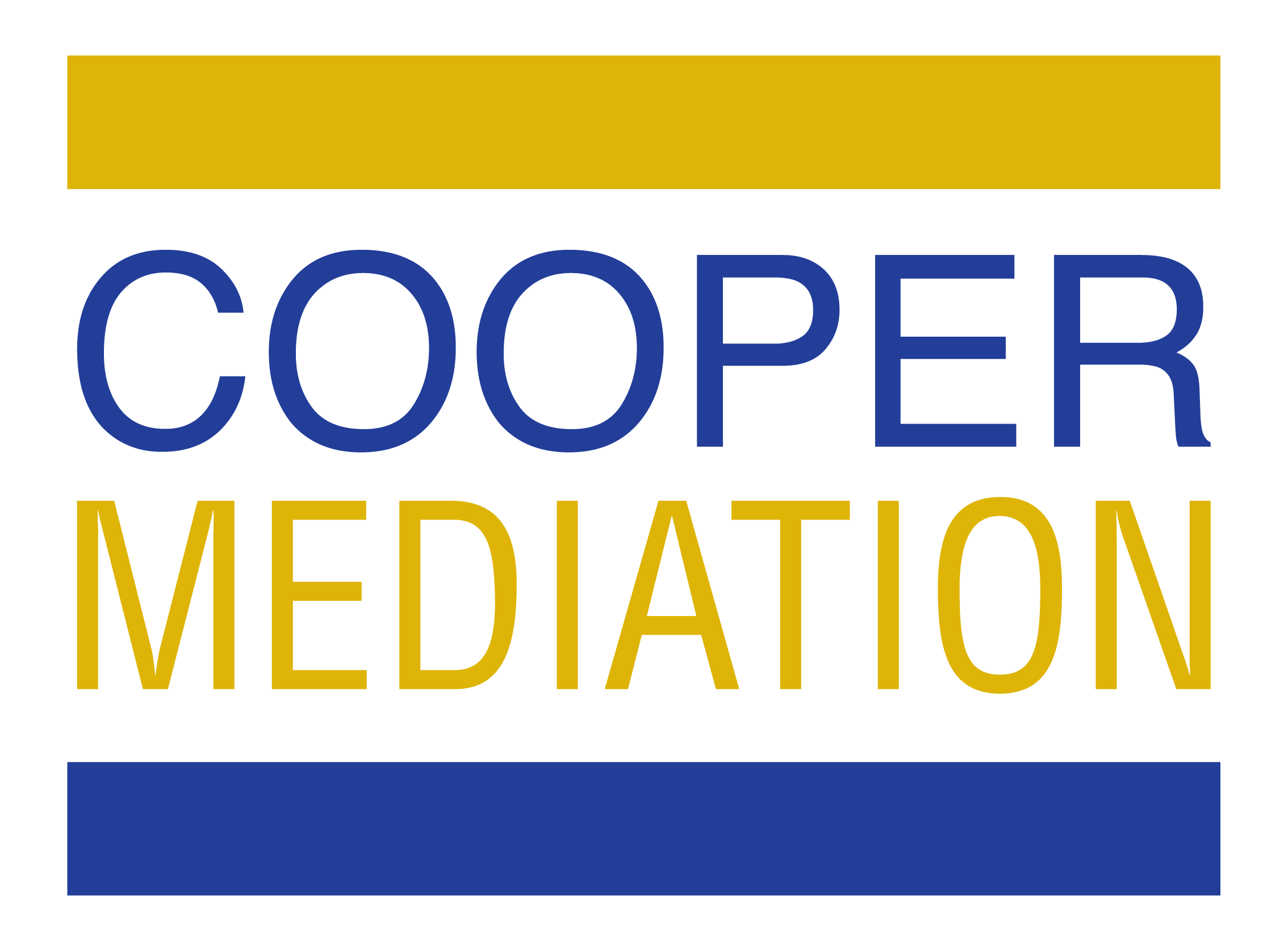
10 Apr Redefining and Revisiting Success at Mediation
Originally published as a paper, read in full [PDF].
All too frequently, I attend mediations and I am asked by one side or the other or both to “work your magic”. It is my theory that neither magic acts nor miracles occur at mediation. Magic acts and miracles certainly don’t happen as a result of the actions of any one person including the mediator. A productive mediation is the result of efforts made early and often by all concerned. It is also my theory that all those involved in personal injury claims and litigation exist in an ecosystem such that there is a symbiotic relationship between and amongst the participants. The key factor is for all those involved in the ecosystem to have a better understanding of what constitutes a meritorious claim and how each of the participants can do their respective jobs, look out for their respective clients or interests and coexist. In this blog post, I look at the current landscape of personal injury and insurance mediation and make recommendations to lawyers and insurance claims professionals for activities before and at mediation that are aimed at fostering a symbiotic relationship.
1. Be Selective About The Cases You Accept
Plaintiff Counsel (PC) must accept retainers from clients carefully and cautiously. If you are accepting a retainer from client with a chronic pain claim, it is essential that you obtain pre-accident clinical notes and records, a decoded OHIP summary, work records, employment files and income tax returns. The time to obtain these documents is not in satisfaction of undertakings but, rather, before the claim is issued and certainly before money is spent obtaining the reports of experts.
2. Constantly Re-Evaluate Your Client’s Claim
PC must remain in contact with their client. If your client has ongoing impairments and difficulties but is not pursuing treatment, this situation can be identified and remedied. Complaints of pain to friends and family, in the absence of evidence of recorded complaints to healthcare professionals and pursuit of appropriate treatment and mitigation efforts, are highly unlikely to persuade anyone at mediation or at trial.
3. Speak to One Another – Chapter 1
The Insurance Claims Professional (ICP) can get PC to focus on the underlying facts and evidence as distinct from reports from experts. If the plaintiff has a good work history and has made earnest efforts to return to work without success, this should factor into the assessment of even the harshest insurer. Similarly, if the plaintiff has a relatively clean pre-accident health history before the accident and has sought out considerable treatment after the accident, particularly if recommended by treating healthcare professionals, this evidence cannot be ignored. The ICP can encourage PC to gather documentary evidence which will assist the ICP in assessing the claim, setting reserves and, ultimately, obtaining settlement authority.
4. Speak to One Another – Chapter 2
Defense Counsel (DC), upon being retained, should speak with the ICP to get an understanding as to how the ICP and insurer currently view the claim and how the ICP wishes the claim to be defended going forward. If the insurer has no appetite for settlement at this stage, having regard for what it knows or doesn’t know about the claim, there is no reason for DC to try to engage PC in settlement discussions. On the other hand, if the insurer is in the dark, from an evidentiary perspective, and if the insurer might be willing to engage in early resolution, DC should engage PC in appropriate documentary production with a view toward considering settlement discussions in advance of examinations for discovery or mediation.
5. Speak to One Another – Chapter 3
DC, once properly up to speed on the claim and properly briefed by the ICP, should speak with PC. If this is a claim that can be resolved sooner than later, don’t wait. If this is a claim which DC have been instructed not to settle, for one reason or another, I suggest that it is incumbent on DC to bring this situation to the attention of PC [obviously, without breaching any sort of solicitor client communication between DC and the ICP].
6. Judicious Use of Experts
Reports of experts, in and of themselves, are highly unlikely to cause a material change in the evaluation of a personal injury claim. PC should contact DC to find out if experts’ reports are required for mediation. Some insurers seem to require at least one expert’s report to address the verbal threshold. Other insurers seem prepared to evaluate the claim without reports from experts as they know what the plaintiff reports will say and they know what the defence reports will say.
7. Experts – Tell Them What They Need to Know; Not What They Want To Hear
Experts do no favours for their instructing client when they express an opinion favourable to their instructing client which they cannot defend at trial. In my former life as counsel, both defending claims and acting for plaintiffs, I have had meetings with experts while preparing cases for trial. I have had many experts acknowledge the weakness of their opinions, their willingness to agree to the opposing theory if properly cross-examined at trial or their overall reluctance to attend court and give evidence in accord with a report which they wrote largely for the audience who retained them rather than as a true independent expert to assist the court.
8. Keep Your Eye on The Prize
If a claim can and should be resolved at an early stage and at a relatively modest cost, DC should proceed in this direction as soon as possible. Insurers do not want to receive a lengthy written summary of each piece of paper produced in the matter. They do not want DC to conduct lengthy examinations for discovery where any and every question is asked, regardless of its import and impact on the evaluation of the claim. DC should focus on the information and documentation which is likely to have a material impact on the evaluation and assessment of the claim and on the ability of DC to defend the claim at trial.
9. Mediation Requires Application of The “Work Backwards” Principle
I am a strong proponent that there should be direct discussions between PC and DC [please refer to items 3, 4 and 5, above] about the mediation. This should include generating a list of mutually acceptable mediators and establishing a realistic timeline for the mediation. DC can inform PC as to whether experts reports are likely to be necessary or beneficial from the insurer perspective. PC can inform DC as to the quantity and type of experts intended to be retained. DC can emphasize those outstanding undertakings given at examinations for discovery which are likely to be critical to evaluation, analysis and authority [as compared to other undertakings which may be less important]. DC can advise PC whether defence medical assessments are likely to take place in advance of or after the mediation. Direct discussions between counsel may lead to settlement discussions or may shine a bright light on impediments to settle. These discussions may move the parties to retain a less expensive mediator, if the mediation is expected to be a rite of passage or if the mediation is happening at a relatively early stage in the litigation, or to retain a more expensive mediator who may have a particular skill set necessary to deal with a challenging legal issue or one or more challenging personalities, environments, etc. Mediators are not “one-size-fits-all”. Thought and care should be taken retain a mediator appropriate for the nature and size of the claim and the qualities of the individuals involved in the claim.
10. Mediation – An Exercise In Informed Decision-Making
It is very important that DC present the reasoning behind their anticipated negotiation path in a clear, understandable and digestible format for the plaintiff. It is important for me to be certain that the plaintiff has heard and understood the facts, evidence, analysis and theory advanced by DC. It is similarly very important that PC explain to the ICP why the court [judge, jury or both] will warm up to the theory of the claim advanced by PC and why PC has the skills and abilities to achieve a certain result at trial and why the plaintiff has the intestinal fortitude and commitment to see things through to completion. It is important for me to be certain that the ICP has fairly and objectively listened to the plaintiff, if he or she has chosen to speak, observed the plaintiff and understands the theory of the case as advanced by PC.
If the plaintiff and ICP, as decision-makers, have all of the facts, evidence, legal and risk analysis in front of them and have fairly and realistically performed their evaluation, they are in a position to make informed decisions and I have done my job.
Conclusion
I suppose the simplest conclusion to draw from the foregoing is the need for better communications amongst all people involved in the personal injury ecosystem. If there is a better understanding of:
- the strengths and weaknesses of a claim or of a defence,
- risk analysis from both sides, and
- the motivations and constraints affecting decision-making
mediation will provide all concerned with the best opportunity for resolution. If a negotiated resolution is not a likely attainable result, better communications before and at mediation will help to minimize the costs and efforts expended in advance of and at mediation while still giving the decision-makers the greatest opportunity to make an informed and sensible decision.
ABOUT THE AUTHOR
 Vance Cooper is principal of Cooper Mediation Inc. Vance devotes 100% of his professional time to mediating and arbitrating primarily personal injury and insurance cases. He serves as an arbitrator in loss transfer and priority disputes under the Insurance Act.
Vance Cooper is principal of Cooper Mediation Inc. Vance devotes 100% of his professional time to mediating and arbitrating primarily personal injury and insurance cases. He serves as an arbitrator in loss transfer and priority disputes under the Insurance Act.
Vance can be reached at vance@coopermediation.ca or (647) 777-4011.
To schedule a mediation with Vance, visit: http://coopermediation.ca/vances-online-calendar/.
